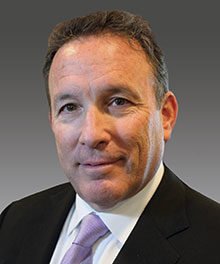Facebook Crackdown

The attorneys general of more than 40 states are suing Meta, the parent company of Facebook and Instagram, alleging that they target teenagers and children with addictive technologies. It’s a bipartisan effort, one that reflects mounting concern from all sides about the impact of social media.
As a father, I’m glad to see this. Most parents and people who care about young people know that it is better for them to be out playing, joining sports teams and extracurriculars, reading, socializing—just about anything—than hanging out on social media. It can be fun to share good news and family photos on sites like Facebook and Instagram and to keep in touch with friends we might have lost touch with.
Nonetheless, there is mounting evidence that social media can also create stress and even danger for young people—when you factor in misleading messages, cyberbullying, and online predators. Some experts have recently been looking into whether social media has contributed to a rise in teen suicides documented by the Centers for Disease Control.
Despite this, it’s very difficult for parents to fight these influences. It’s easy to control young people’s media consumption when they’re still in elementary school, but that gets harder in middle school and beyond as they become more independent, and more of their communication with friends happens on apps and communities on their phones and computers. Just try asking any young gamers in your life to stay off Discord, for instance, and you’ll see what I mean. Factor in the addictive nature of many social media sites, and it’s that much more difficult for parents to act as protectors.
It’s high time this industry is held to the standard of other sectors, so I’m glad the AGs are banding together on this. It’s great for products and services to be “sticky,” but none should be doing harm through their design. Social media giants had a free pass for a while when the tech industry was still young, but at this point, it’s well-established. Facebook first came out in February 2004, nearly 20 years ago.
I see this latest challenge as an opportunity. At a time when many companies are paying attention to the “S” in ESG (environment, social, and governance) goals, social media companies have a chance to be proactive here. More than anyone, they have a window into how they’ve designed their technologies, how people interact with the bells and whistles on their sites, and how these interactions affect users, particularly younger users, and to know if they are addictive.
Hopefully, all the pressure on these companies from this latest suit will lead them to choose a healthier path for society. There’s no need to throw the baby out with the bathwater—I’m a big tech fan, and relatively simple tweaks can bring about big improvements—but it’s clear something needs to be done to protect vulnerable youths. Young people are our future. We need to do all we can to stay aware of what they’re doing online and keep them safe from the unintended consequences of a more tech-driven society.
